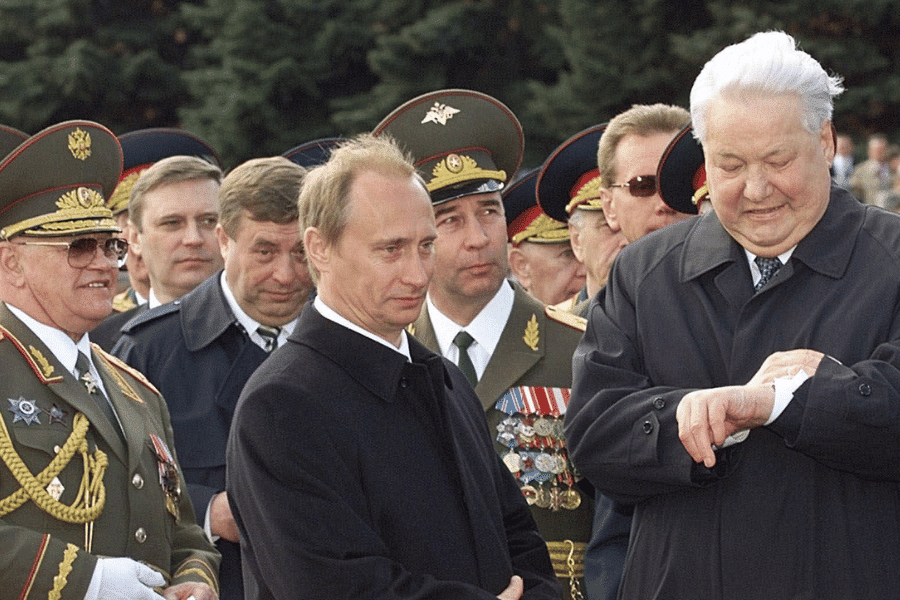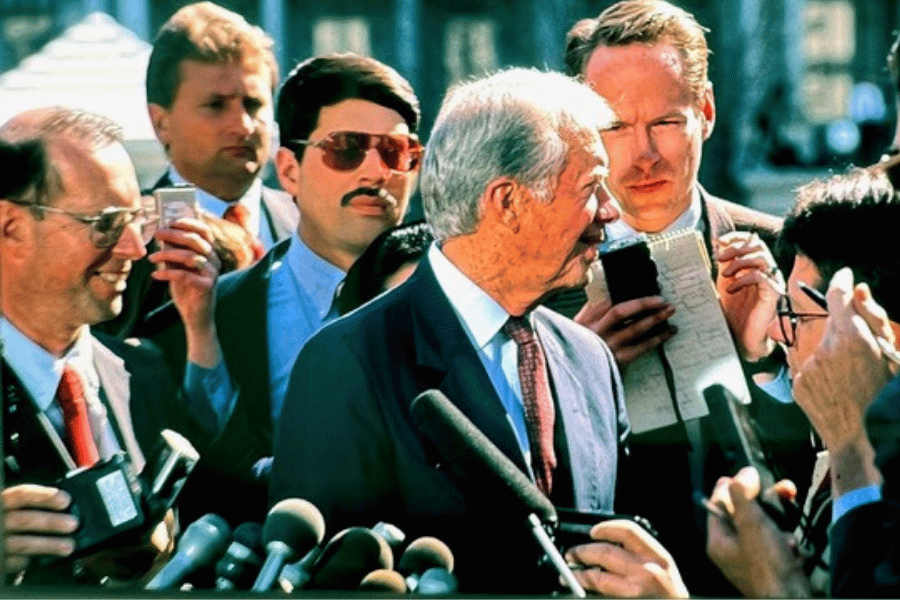
by Alistair Lyon | 15 Oct 2024 | History, Israel-Palestine
The assassinations of leaders of Hamas and Hezbollah, an invasion of Lebanon and the all-out assault on Gaza beg the question: Does Israel have an end game? Iranian demonstrators hold posters of slain Hezbollah leader Hassan Nasrallah during an anti-Israeli protest in...

by Helen Womack | 8 Oct 2024 | History, Journalism, Russia
We colour history with nostalgia when we are dissatisfied with the present. But for those who know only what’s now? They might not want to go back. Former Russian President Boris Yeltsin, right, looking at his watch, and newly-appointed President Vladimir Putin,...

by Feizal Samath | 3 Oct 2024 | Asia, History, Politics, Wh-Y Vote
In Sri Lanka and elsewhere, people are telling elected politicians to clean up their act or find themselves out of a job. Supporters of National People’s Power cheer their leader and presidential candidate Anura Kumara Dissanayake during a public rally in...

by Jonathan Lyons | 2 Oct 2024 | History, Journalism, Politics, Wh-Y Vote
U.S. presidents have often twisted the truth. But Donald Trump has flooded the media with falsehoods in a unique challenge to democratic institutions. Republican presidential nominee former President Donald Trump speaks during a campaign rally at Bayfront Convention...

by Gene Gibbons | 1 Oct 2024 | History, Politics, United States
Jimmy Carter wasn’t expected to be president. When he failed to get reelected, most people expected to forget him. He ended up setting a model few could follow. Jimmy Carter (center) talking outside the White House to reporters, including the author, Gene...

by Tira Shubart | 30 Sep 2024 | Culture, Europe, History
On a wild swim tour of Greece you might not brush aginst ancient stones. But each stroke you take breaks through a history as deep as the Ionian Sea. “Wild” swimmers in the Ionian Sea near the island of Mathraki. (Photo courtesy Tira Shubart) This article...

by Cathal O'Luanaigh | 17 Sep 2024 | Americas, Correspondents in the Spotlight, History, News Photography
Photojournalism can document what’s happening now and chronicle our past so we can create a new future. Enrique Shore has spent a lifetime doing just that. When you read a published article on News Decoder, you’re only seeing part of the story. Who is writing...

by Daniel Warner | 16 Sep 2024 | Decoders, Educators' Catalog, History, Human Rights, Politics
Russia didn’t attend the 75th birthday of the Geneva Conventions. Are the treaties that govern how nations conduct war still relevant in today’s chaotic world? Members of the UN Security Council mark the 75th anniversary of the signing of the Geneva...
Use this piece to explore international relations, geopolitics, the politics and history of conflict. Last month marked the 75th Anniversary of the Geneva Conventions. Russia didn’t attend. Political Scientist Daniel Warner decodes whether the treaties that govern how nations conduct war are still relevant in today’s chaotic world.
Exercise: Debate. Split students into groups. In each group, divide students into two teams. One will defend the Geneva Conventions, the other is against the conventions. In preparation, watch this video and share the ICRC website. Each team undertakes research to build an argument for their case. Ask students to debate the issue. After the debate, discuss the difficulties teams had in supporting their arguments.

by Helen Womack | 12 Sep 2024 | Europe, History, Politics, Ukraine
Hungary is not known for welcoming immigrants. But in a country where the language is difficult to master, many immigrants might simply choose to move on. A man asks a woman for help in Ukrainian and she tells him to please speak Hungarian. This article was produced...

by Jeremy Solomons | 5 Sep 2024 | Educators' Catalog, History, Human Rights, Politics
Can even leaders on the wrong side of history be credited for good outcomes? Can awful leaders be awe-inspiring? Then-Libyan President Moammar Gaddafi arrives in Venezuela, 25 September 2009 to attend the Africa-South America, ASA, summit. (AP Photo/Ariana Cubillos)...
As half the world goes to the polls this year, Jeremy Solomons asks: Can even leaders on the wrong side of history be credited for good outcomes? Can awful leaders be awe-inspiring? Explore leadership, leaders and their legacies with your class and push them to develop their critical thinking and argumentation skills.
Exercise: Choose a controversial leader, dead or alive. You may agree or disagree with their position, politics or legacy. Build a picture of some of their decisions that had widespread negative impacts and find some positive aspects to their leadership. Next, play devil’s advocate and try to argue the good or positives that may have come from negative decisions. How might people on both opinion sides see the leader’s legacy? To conclude, students can express their own views on the matter and find nuanced arguments and discourse to express these.










